Affiliate links on Android Authority may earn us a commission. Learn more.
LG banks on fancy processor and webOS to set latest TVs apart from competition
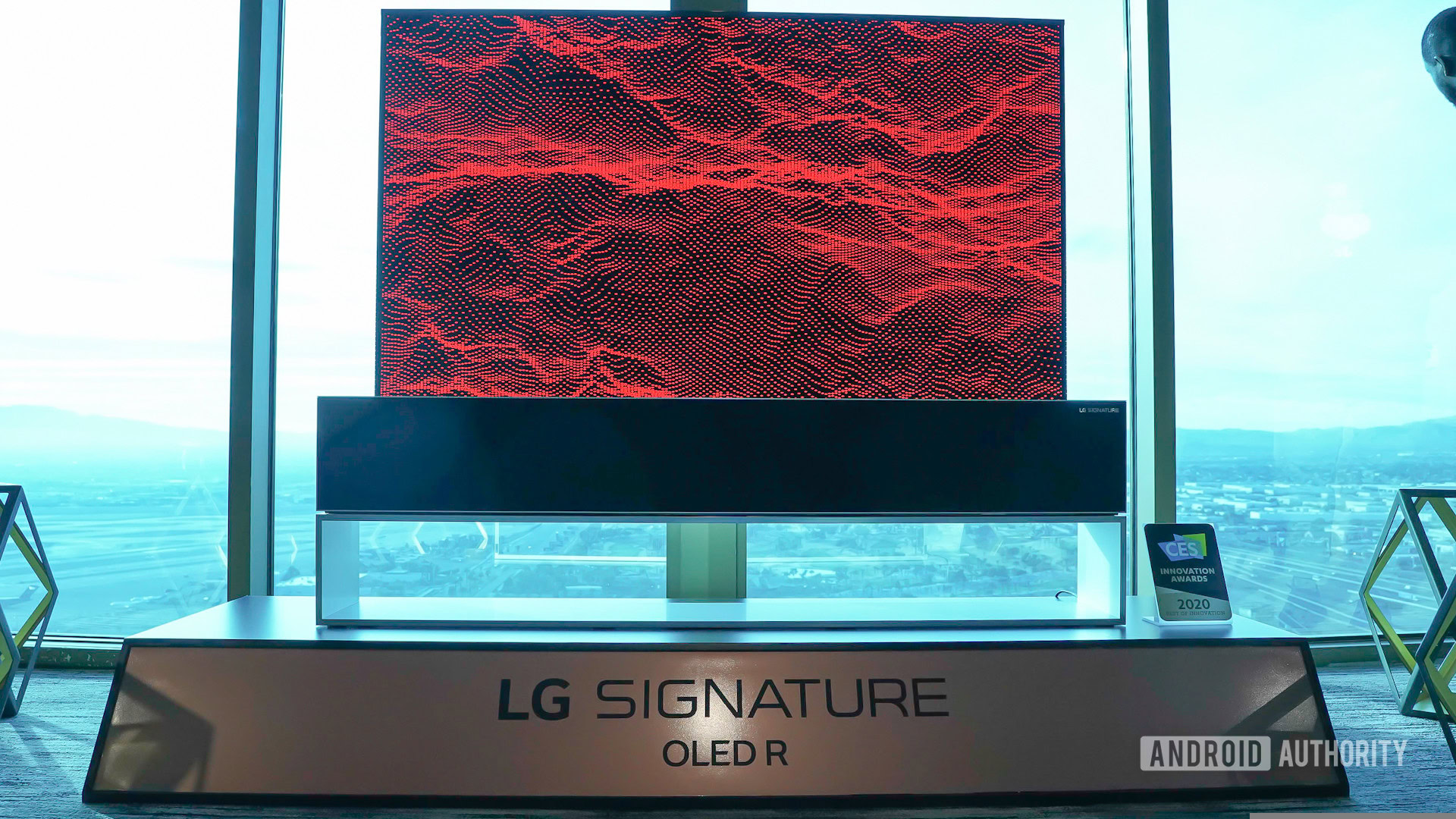
LG TVs are a mainstay of its CES announcements, and 2020 is no different. The company announced no fewer than 14 fresh models, falling under several families that rely on a mix of OLED and LCD technology. LG believes its custom processor and webOS integration deliver that extra punch to win over consumers.
The company is targeting select activities for its 2020 TVs, including movie watching, sports viewing, and gaming. Its range and depth just may get the job done. LG’s 2020 CES TVs include the OLED ZX Real 8K series, the LCD Gallery series, the NanoCell LCD series, and the LG OLED Signature R series. Let’s see what sets these myriad models apart.
Alpha 9
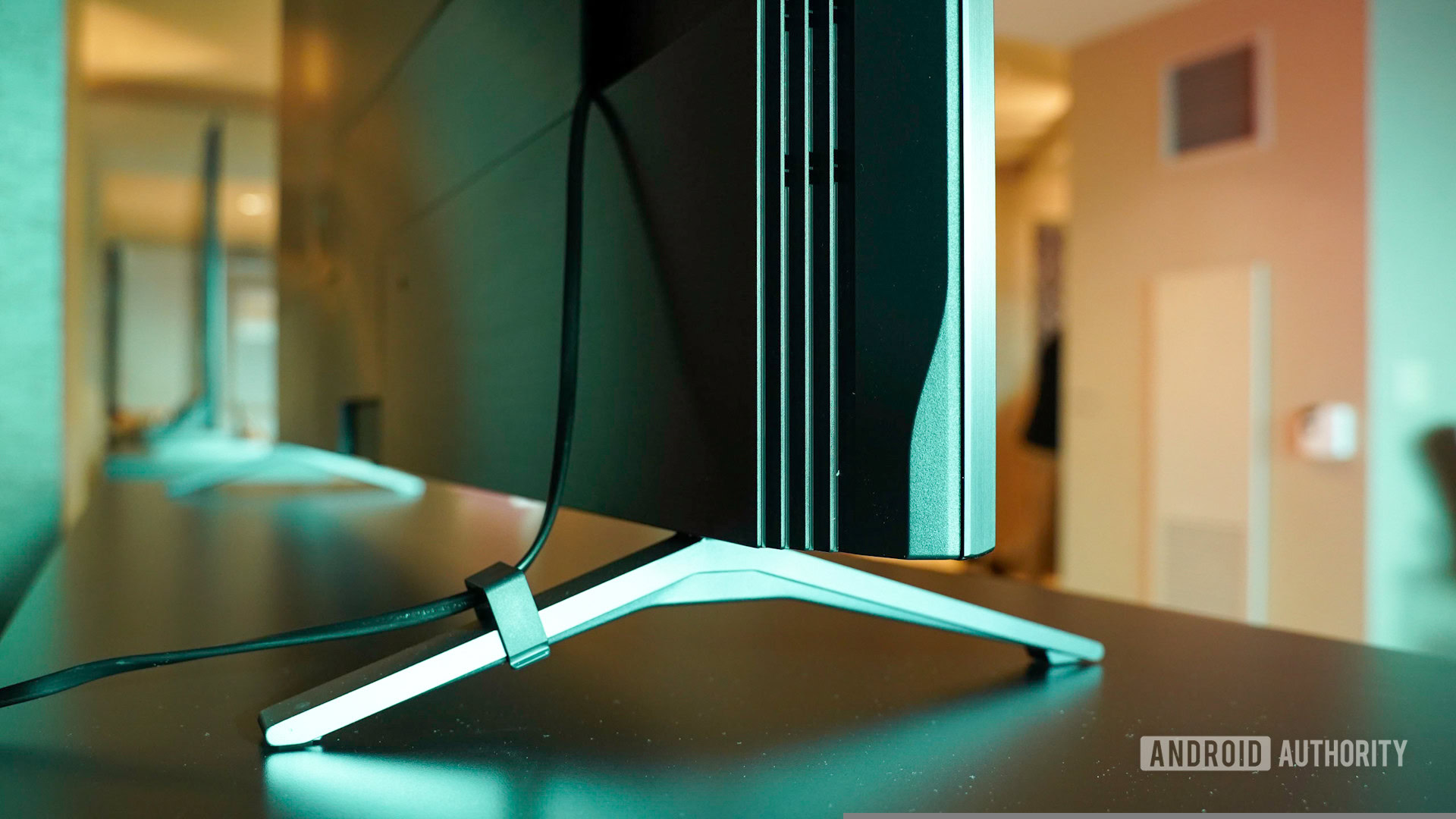
No, that’s not a star designation or (in this circumstance, at least) a Sony camera. Rather, the Alpha 9 is the new processor that powers some of LG’s newest television sets. The Alpha 9 Gen 3 AI processor examines content in real time, corrects for aberrations, color, and contrast, and upscales it to either 4K or 8K, depending on the exact model in question.
We were fortunate enough to see a side-by-side demonstration of this tech while on the ground in Las Vegas. It definitely delivers noticeable improvements. For example, it was able to erase pixel noise, pull details out of darker regions of the picture, and make colors pop without over-saturating them. Neat stuff.
Upscaling is particularly important. The majority of today’s content is still 1080p Full HD. There are 4K Blu-Rays, but 8K content is basically still non-existent. LG TVs can upscale Full HD to 4K or 8K in a way that still looks clean and sharp. The Alpha 9 helps, indeed.
See also: What to expect from processors in 2020
WebOS lives on
LG is pushing an update to its webOS platform across TVs and there are some surprises in store. For example, some of LG’s TVs will incorporate Apple TV. Yes, you read that correctly. No separate Apple hardware required. WebOS already supports Disney+, Netflix, Hulu, and sports networks, but a new secondary floating bar allows people to search for content in select services without interrupting the current show.
A search tool is on offer, as well. Using the voice-activated remote, you can ask the TVs questions such as “who is he” or “where is this” and webOS will perform a rudimentary search and deliver both audible and on-screen results.
See also: Apple TV Plus vs Disney+
Scramble
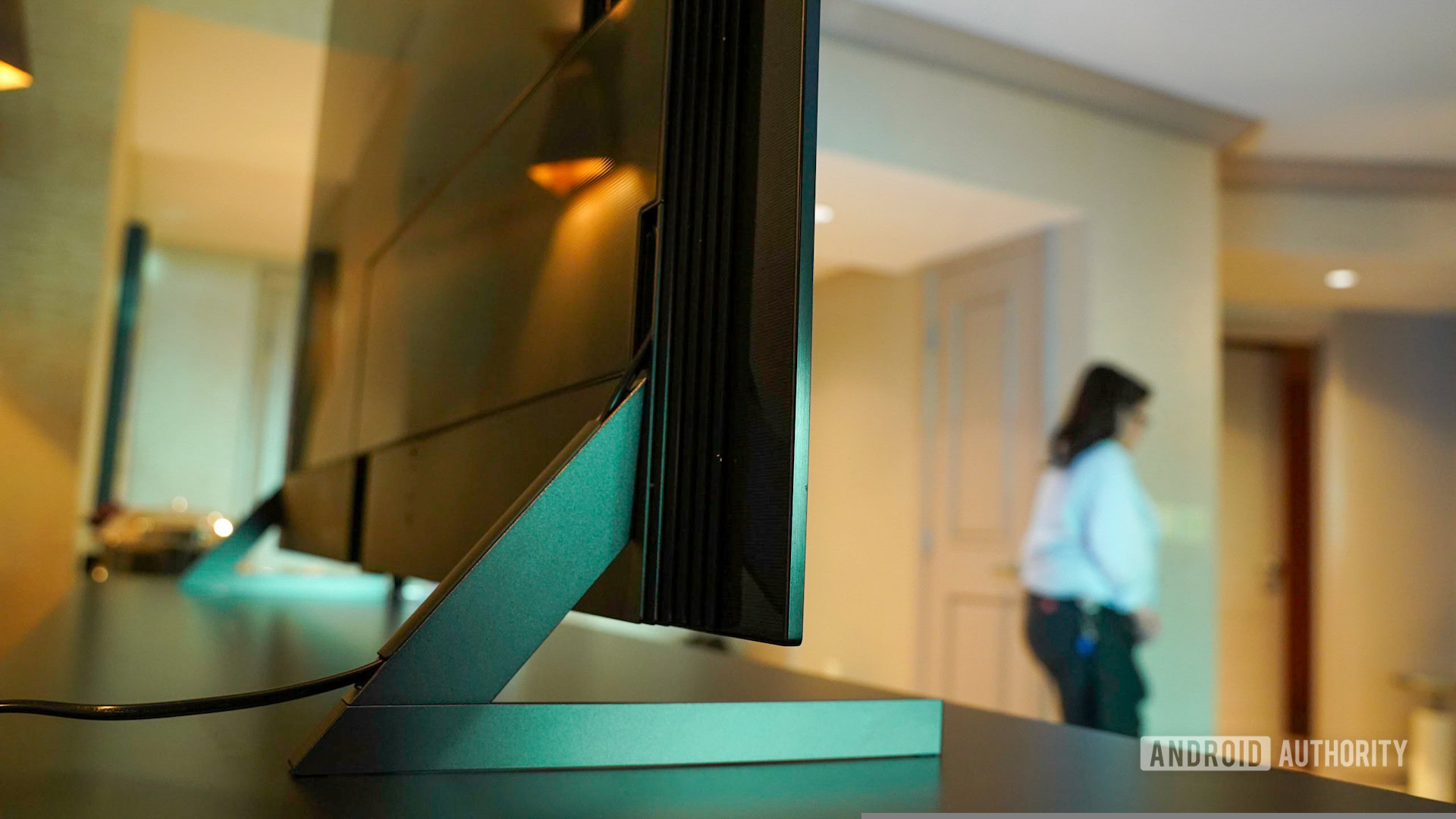
Today’s TVs are a jumble of acronyms such as HD, OLED, 8K, 120Hz, and so on. LG’s naming conventions don’t necessarily make this soup easier to digest.
The signature television set in LG’s roster is the, er, OLED Signature R. This is the one that wowed everyone last year because it rises out of a box, unrolling as it goes. Last year’s unrollable TV is actually just reaching the market, but LG has updated it with the Alpha 9 processor.
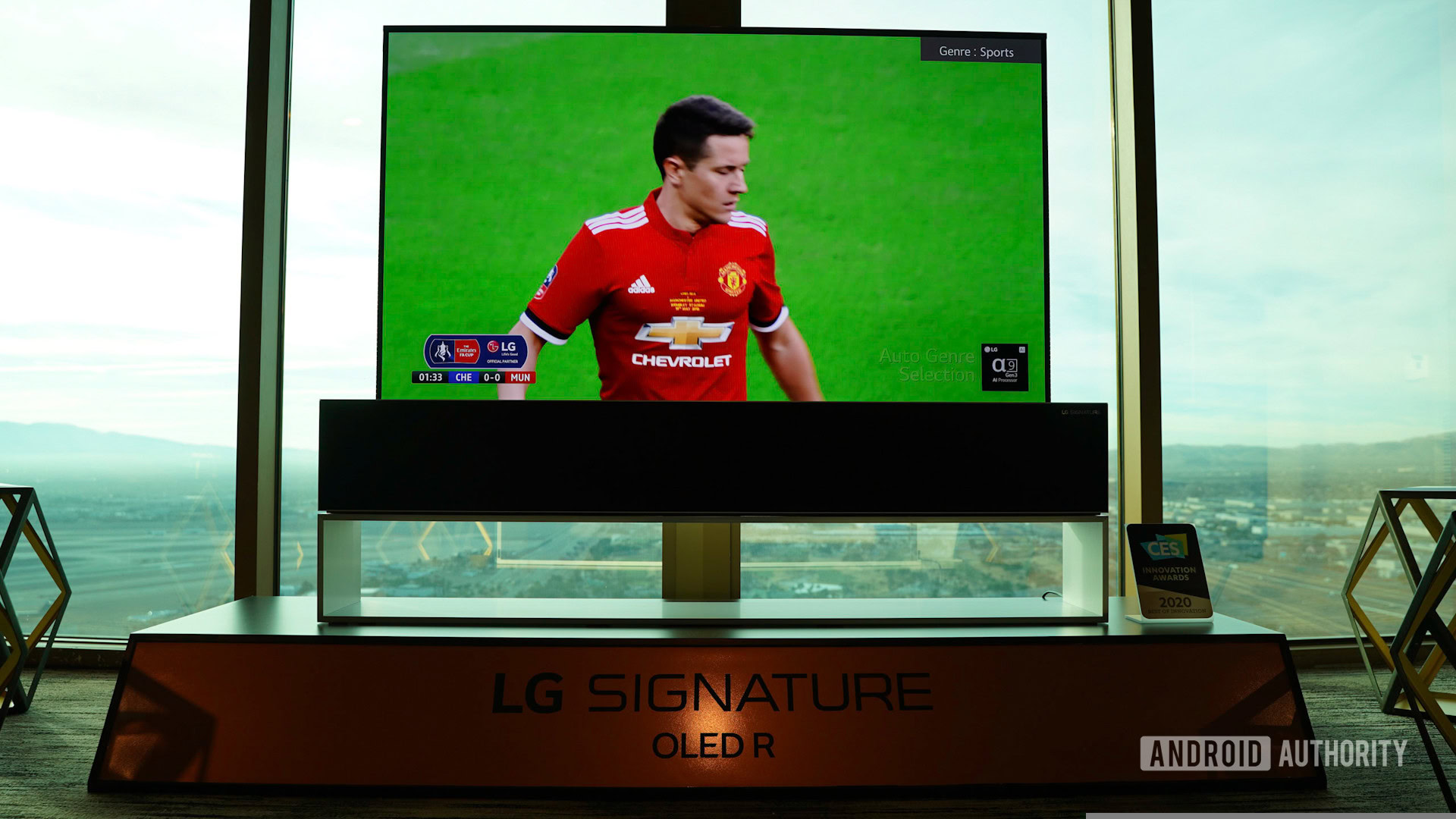
Then there’s the ZX Real 8K series, which relies on OLED technology in the display and is among the first to earn the Consumer Technology Association’s fancy new 8K Ultra HD logo. The Real 8K series offers two models, an 88-incher and a 77-incher. They were quite stunning.
See also: What is 8K?
Next down the list are the 8K and 4K NanoCell LCD TVs. These panels come in 75- and 65-inch sizes in three seperate series. These offer many of the same specs as the Real 8K, but swap OLED for LCD.
The GX Gallery series is all about fitting into your home. The GX Gallery sets come in 77 inches and 65 inches and has space-saving tools built in. I particularly like the cable management system that allows you to hide the cables beneath a removable plastic panel. Cool stuff.
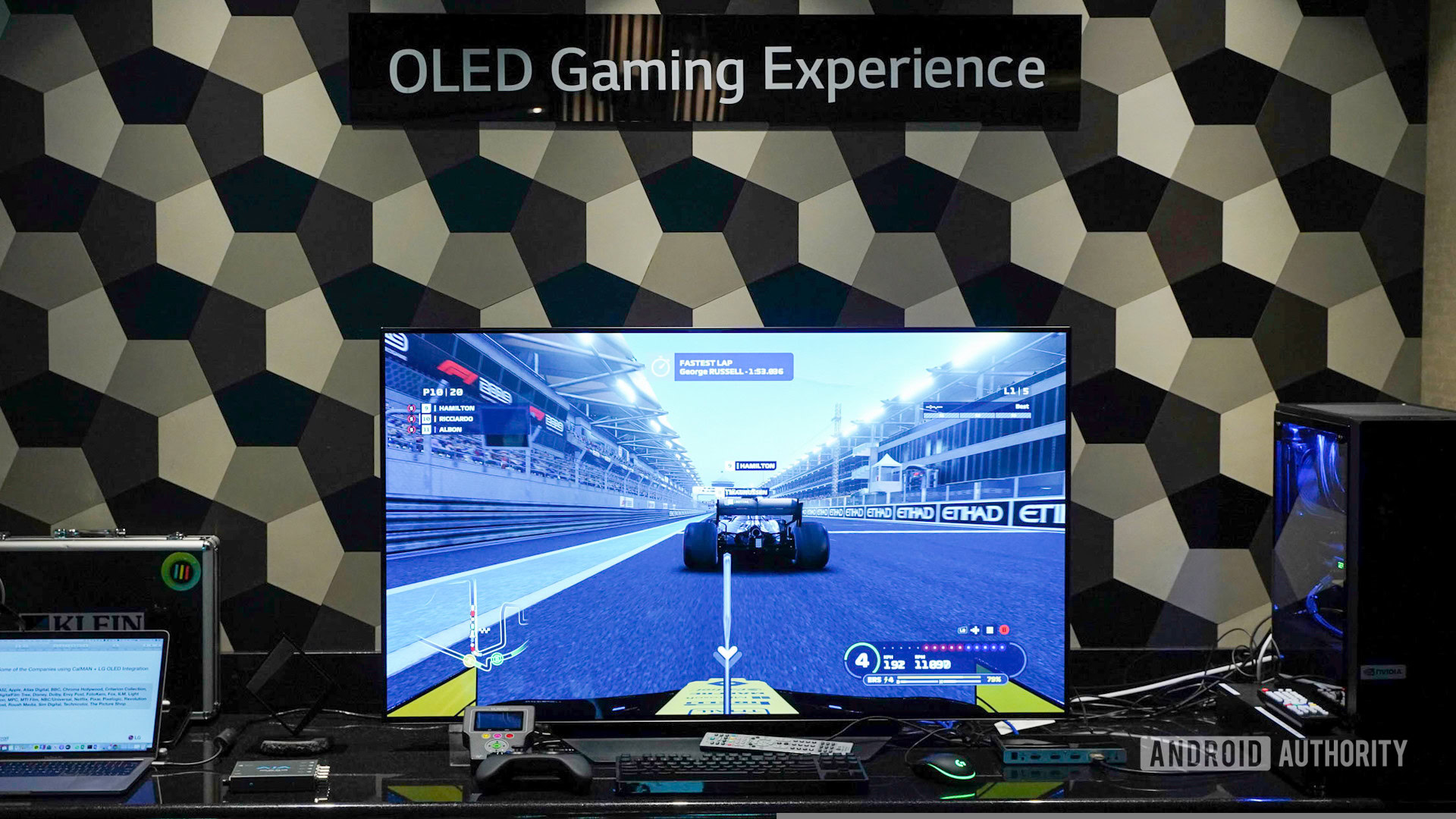
Last, LG added a smaller, 48-inch 4K option to its OLED line.
Pricing? On-sale dates? These are questions LG did not have answers for, at least not yet.